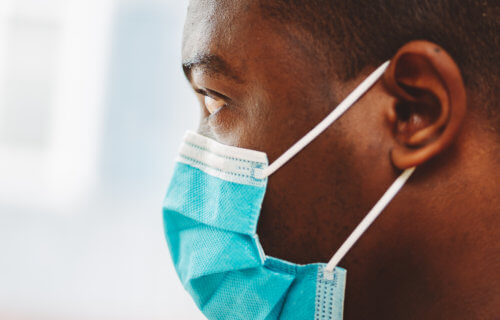New survey shows that nearly 2 in 5 Americans rate their current mental health as ‘fair-to-poor,’ while more than half say the same about their sleep quality.
NEW YORK — As the coronavirus pandemic nears the end of its second year, a new survey finds the global health crisis is taking a concerning toll on the mental health of most American adults. In fact, just 42 percent feel optimistic about post-pandemic life, with most saying that the “new normal” of fearing viruses and overwhelming stress is impacting their well-being.
The poll, conducted by Edelman Data & Intelligence on behalf of Thorne, examined the negative impacts of COVID-19 on the health and wellness of over 4,000 Americans throughout 2021. Researchers surveyed 2,000 adults over 18 in June and then followed up with a similar sample size in September to look at the public’s changing mindset as the pandemic drags on.
Results show two in three American adults say the pandemic continues to affect at least one aspect of their health and well-being. That number is even higher among women (70%) and young adults in Generation Z (75%).
Moreover, more women and millennials say living through COVID is increasing their levels of stress and anxiety compared to other adults. Overall, respondents say the pandemic has had the biggest impact on their sleep quality and mental health since the start of 2020. More than half the poll (55%) rate their sleep quality as fair-to-poor, with another 38 percent saying the same about their current mental health status.
Specifically, 62 percent of Gen Z, 45 percent of millennials, 41 percent of women, and 49 percent of Americans making less than $50,000 a year believe their mental health has fallen to a fair or poor level. Among those who say they’re actively trying to improve their health during the pandemic, only one in three think they’re having success.
New Year’s Resolution: Get more sleep
Although things may seem bleak, the survey finds 89 percent of adults have attempted to improve their health over the last year. Most of that focus revolves around getting more sleep.
Heading into 2022, over a third of respondents say their sleep habits are something they need to work on over the next six months. Four in 10 Americans say they feel “well-rested” after waking up less than half of the time. Out of this group, more than half (56%) add they wake up feeling stressed out more than half the time.
This link between stress and sleep doesn’t end there. Two in five Americans report feeling stress more than half of the time, with 59 percent of this group also noting they don’t feel well-rested on a regular basis.
“A number of factors can aid getting a good night’s sleep,” says Dr. Nathan Price, CEO of Onegevity, a division of Thorne HealthTech, in a statement to StudyFinds.
“One of the biggest signals for sleep is when the temperature reaches a minimum, matching the rhythms of the outside world. Turning down the temperature before bed can make a huge difference in being able to fall and stay asleep. Also, getting out into the sunshine during the day and getting some exercise helps to set the body’s clock and makes it easier to get to sleep when the time comes.”
Another 54 percent say they’re also looking at socializing more to improve their health as communities reopen. Nearly two in three millennials (64%) are trying to socialize more in order improve their health and nutrition.
“The most important elements to anyone’s health are a healthy diet and a robust and consistent exercise habit,” Dr. Price adds.
The ‘new normal’ needs a pick-me-up
Even as the world heads towards the post-pandemic era, new COVID variants and ongoing health mandates have most Americans fed up with the future. Just 42 percent say they have an optimistic view of post-COVID life. Only 28 percent say they’re excited about the idea of the “new normal.”
Specifically, the survey finds more Americans fear getting sick now than they did earlier in the year. Fear of COVID-19 variants (58%) is driving that — a 16-point increase from earlier in 2021. However, catching the common cold still worries 41 percent of respondents, a nine-percent jump from the June survey.
A lot of this frustration boils down to Americans feeling like they have no control over their lives. The poll finds more American adults feel they have less control over their sleep and stress levels now than they did four months ago. Millennials (40%), women (47%), and those making less than $50,000 (47%) were more likely to say this than other groups in the survey.
Among all adults, only half the poll (49%) believe they can control their stress and the same number also believe “they will always wake up feeling tired.”
“Improving energy comes down to the pillars of exercise and nutrition,” Dr. Price explains. “Key nutrients that can have a big impact on energy include the b-vitamins, and compounds such as nicotinamide ribosome (NR) provide increased levels of NAD+ in cells and can also contribute to more consistently high energy. This is particular true as we age, since NAD+ levels decline as we get older.”
Overall, the poll finds a quarter of adults have used dietary supplements to improve their health over the last year. Millennials are also twice as likely to try an at-home sleep and stress test than other adults.
